A caveat before I begin. I originally wrote and posted this on my older photo blog in 2017. That will explain the time discrepancies you will read. I wanted a place for it to live on here.
As a history student, the constant gaze and analysis of the past can sometimes inhibit myself from recognizing the present. Trying to figure out and live through historical moments is always tricky - so often menial present moments are transformed through the passing of time to become instrumental and dramatic historic events. This is the case for a lot of the moments in our lives. However, sometimes there are those moments where you know right off the bat that this is going to be a huge, historic moment. The kind of moment that your kids are going to ask you "Where were you when (insert historical event) happened?"
When I travelled to the UK in the summer of 2016, I had very little knowledge of the Brexit campaign. While I was aware that I was arriving on June 23rd, the day of the referendum on the UK leaving the EU, I thought very little of it. Similar to most people in the UK and the world, I assumed the vote would transpire, it wouldn't succeed, and the event would be simply be wremembered as an interesting tidbit of history, much like the Scottish referendum of 2014, or the Quebec referendum of 1995. But it wasn't either of those and it was instead the momentous event we now know and continue to grapple with, today.
So, where was I when I found out Brexit happened? After enjoying a night out in the streets of Edinburgh on the 23rd, I was sleeping in on June 24th. Sleeping in until two in the afternoon to be exact. I lumbered into my friend’s living room to find him looking at his phone and exclaiming "DUDE WE ARE OUT OF THE EU!"
Stunned and too detached from the matter to realize the ramifications of it, I just sat there in the living room, still trying to get over my jetlag and the beers from the night before. I went about my day and the rest of the trip, trying to come to terms with it all. I landed in the UK with one Prime Minister leading it, and left with another in charge. From chatting with really pissed off Scottish friends, whose entire lives were/are thrown into array due to Brexit, to being a part of the crowd outside Downing Street upon David Cameron's motorcade being whisked away after his resignation, those three weeks were probably some of the most interesting times that I'll probably ever experience in the UK.
Having recently come back from Quebec, where I exclusively biked around the city, I was convinced that cycling was/is the best way of seeing a place. Biking is just fast enough to be efficient in covering a lot of ground, but slow enough to get a sense of the place. Let me explain further.
When you take a cab, bus, or subway, your sense of place becomes segmented. This is usually fine in a place where you live, because you have an extended amount of time to fully experience all the space between the spaces you inhabit, work at, and hang out in. However, while travelling you only have a limited amount of time and thus your experience of a city or place inevitably is segmented. You know pockets of places, but not the larger area.
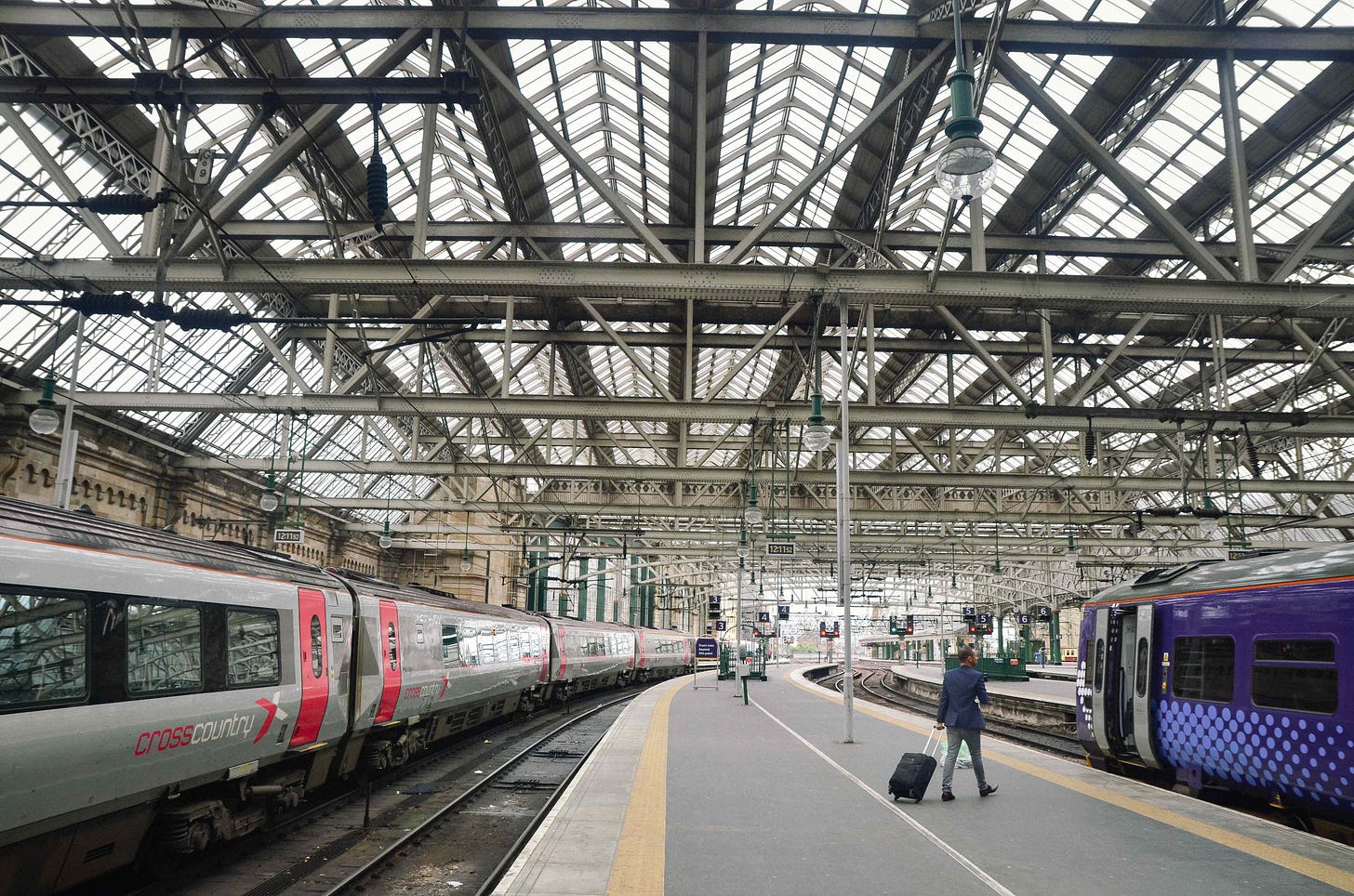
Getting into Birmingham, I picked my boxed up bike, dragged it outside, and got to assembling it. I was initially wary that something would go wrong, but about 30 minutes later I was all ready to go. I decided to bike to the closest train station and upon arriving I put my bike into one of the front coaches (in the UK the trains have a designated area where you can leave bikes and stuff like that), and took my seat. I don't know too much about the four hour train ride to Edinburgh as I was dealing with jet lag and fell in and out of sleep.
Edinburgh was my first stop in my UK trip and I stayed there for about a week and a half. It was good to hang out with friends who I hadn't seen in over 5 years. Staying at their house in the center of Edinburgh, I ventured out each day with them (on bikes of course), as they showed me around the city.
I was blown away at how many historical buildings there still were. If I were to throw out a statistic that isn’t necessarily true but feels right to me, I would say that at least 80 percent of the buildings within 5 miles of the centre of the city are either 100 years or older. I think that my awareness of these historic buildings was heightened, having just come out of a degree where I focused on Winnipeg civic history, and lamented the devastating spree of demolition of heritage buildings in the 50s and 60s.
While I was only there for a about week and a half, by the time I left I felt like I had been there for at least two months.
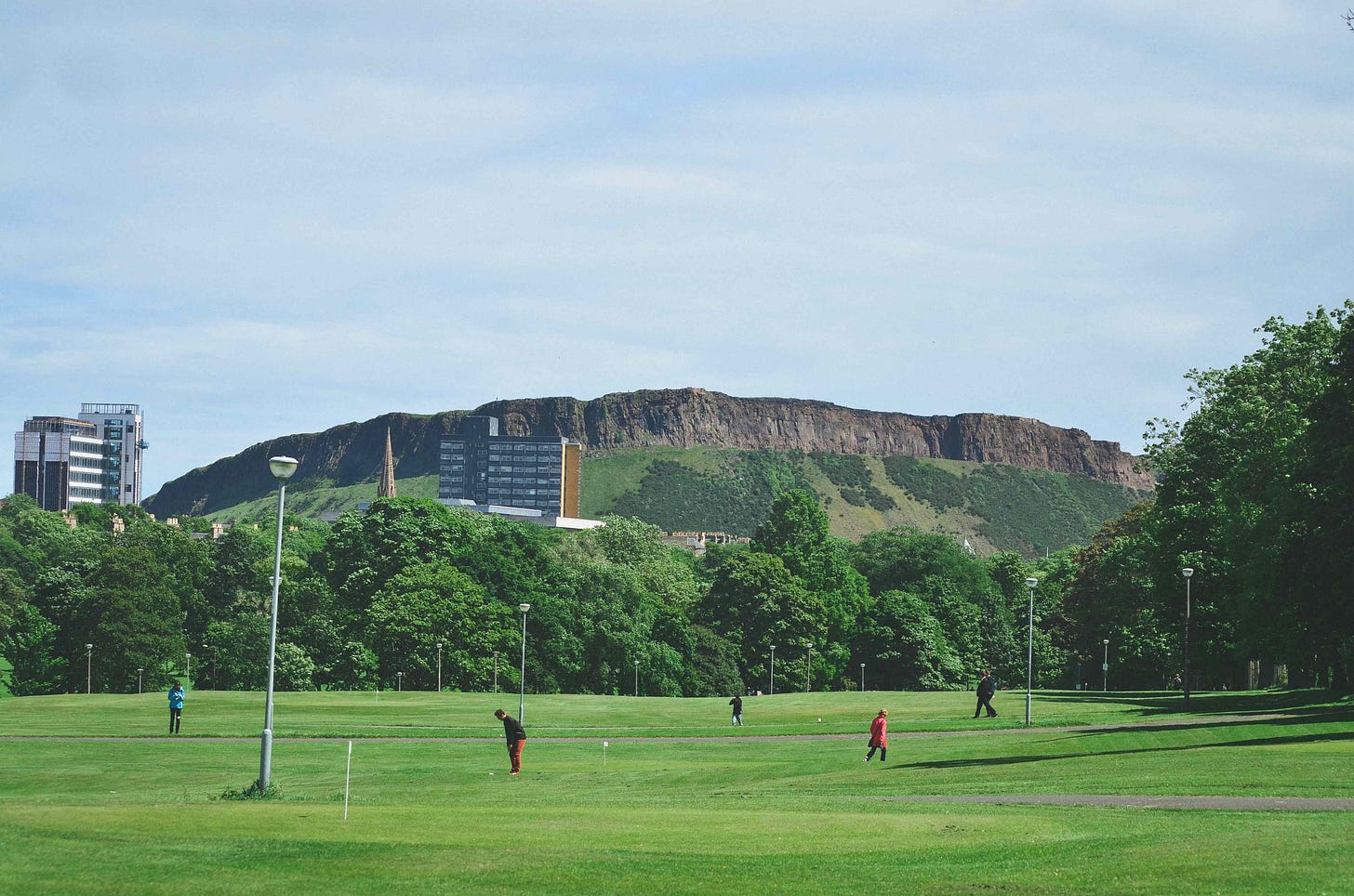
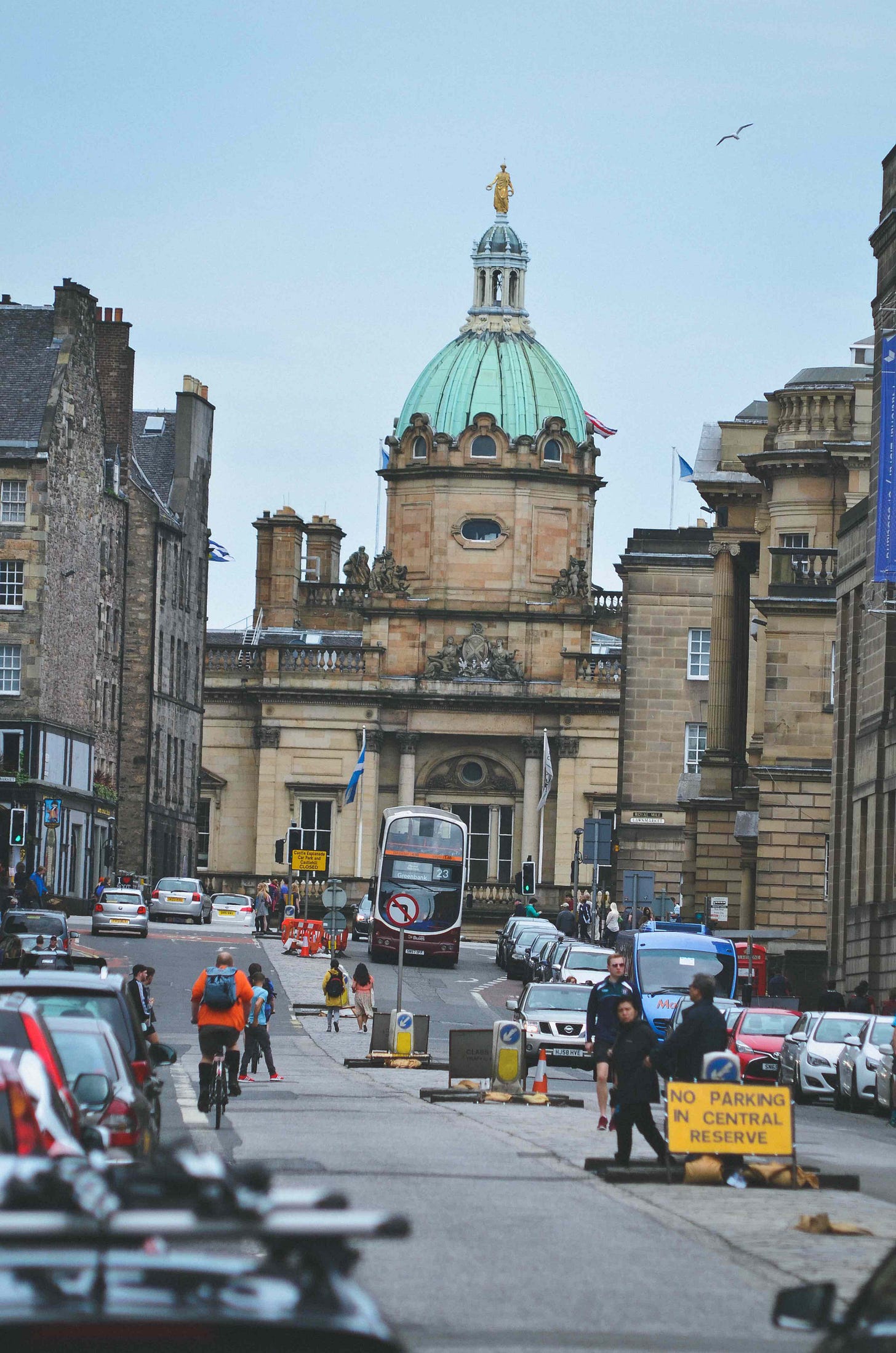
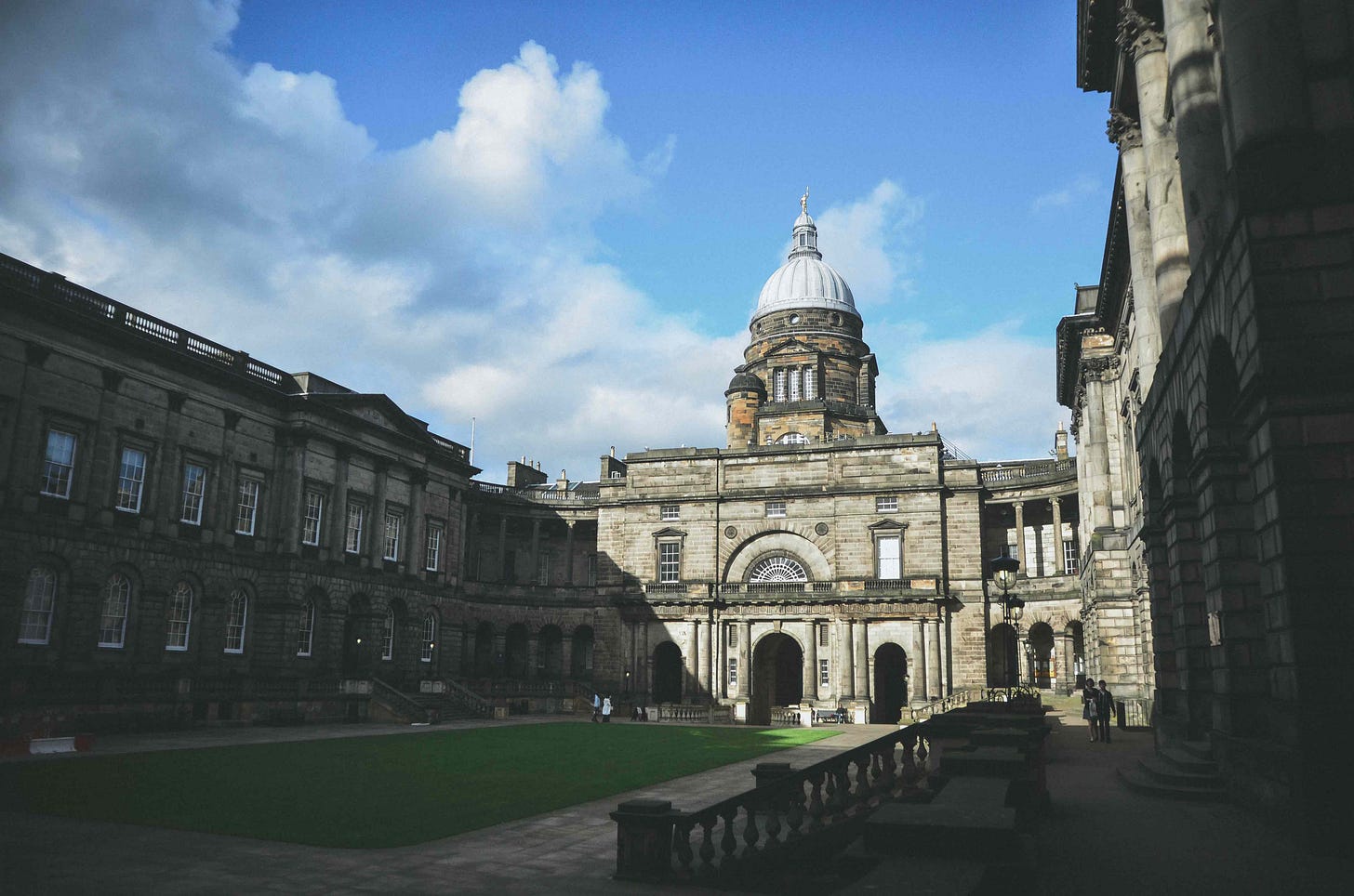
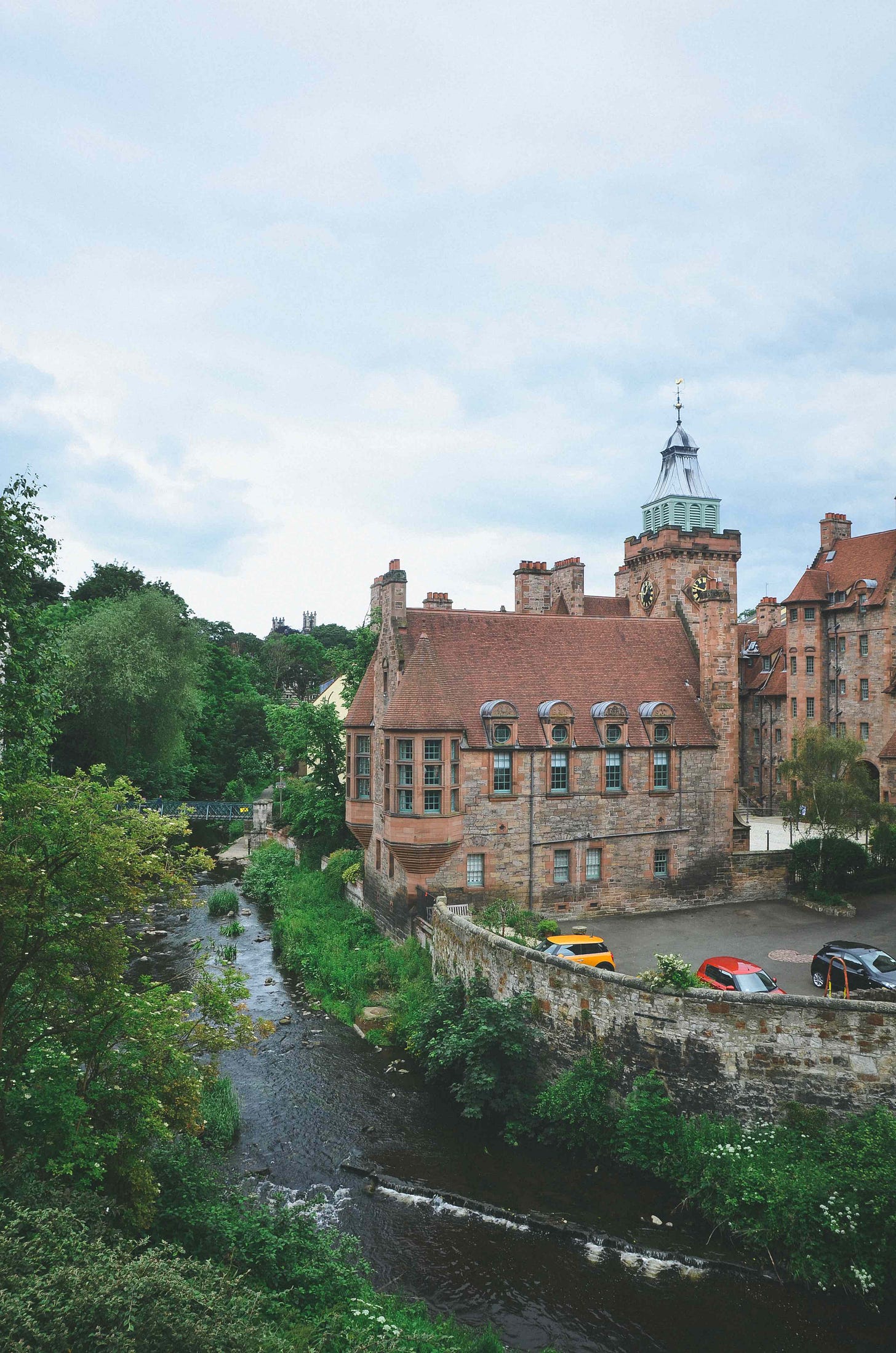
But of course looming over all this was Brexit.
I was not only in the UK when Brexit went down, but also Scotland in the immediate aftermath. In the Brexit vote, Scotland had voted overwhelmingly to stay in the UK. What had tipped the scale was the essentially all of the areas in England, besides the metropolitan area of London. When Scotland had its referendum to leave the UK in 2014, the fact that leaving the UK would also mean leaving the EU for Scotland was touted by the Remain side and judging the result, it had worked. Scotland was a good boy and behaved. They had stayed in the UK but now they were still out of the EU. I remember the immediate days after the referendum, there were countless newspapers touting the strong connection that Scotland had to the European continent, arguing the connection was even closer and longer lasting than their union to the United Kingdom.
While I was in Edinburgh, I got introduced to my friend’s circle of friend, a disparate collection of coupled and single people from the US, Scandinavia, and across mainland Europe. Suddenly Brexit made their living situations precarious.
I would have loved to stay in Scotland for much longer, but I eventually had to leave and pretty soon I was on the similar train heading down south again. While still all part of the UK, I had now become more mindful as we passed through Scotland and back into England. Brexit had brought forth in my mind (and I think to many people) the tension between these two places.
Instead of going straight back to Birmingham, I stopped by Manchester and stayed with friends who lived just outside of the city. While I was only there for a day, I didn't take many photos and instead merely took it all in. Perhaps it was placebo, however I could just get a sense that I was no longer in Scotland. Having spent almost two weeks there, the difference between the two countries was palpable. What about those who have spent their entire lives in one or the other and visits the opposite? What's it like? The only comparison I could think is Canada and the United States. While they are close geographically, they are vastly different culturally.
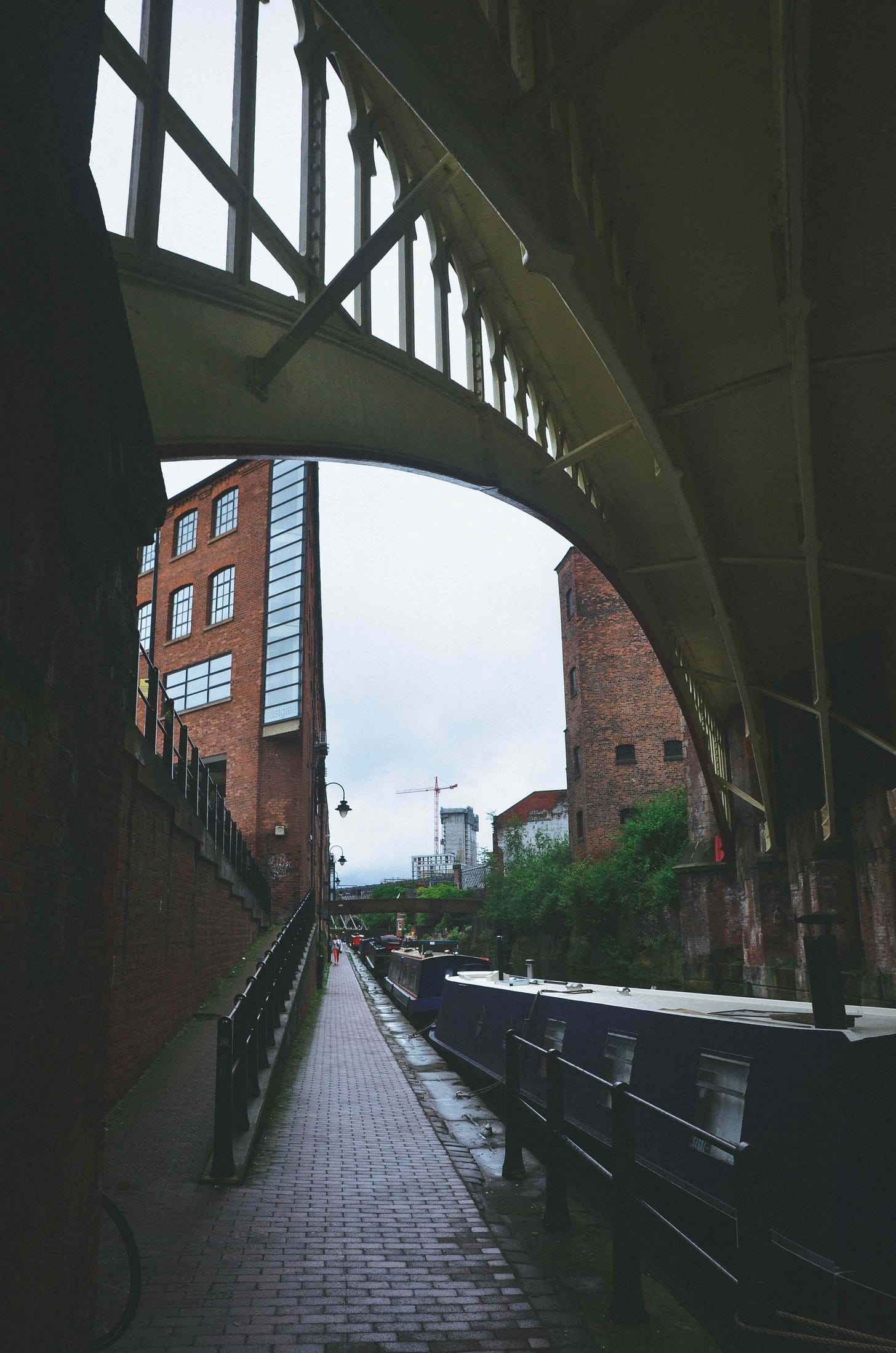
After spending a bit of time in Manchester, I took the train down to Birmingham. The main reason why I was in the UK in the first place was that my childhood friend was getting married in Birmingham. I had barely spent any time in Birmingham when I suddenly went on the "Stag-do," (bachelor party). Far from just being just a night out with the boys, we all piled in a van and headed toward the western edge of Wales. For the weekend there we spent time in a cabin, played cards and went cliff diving.
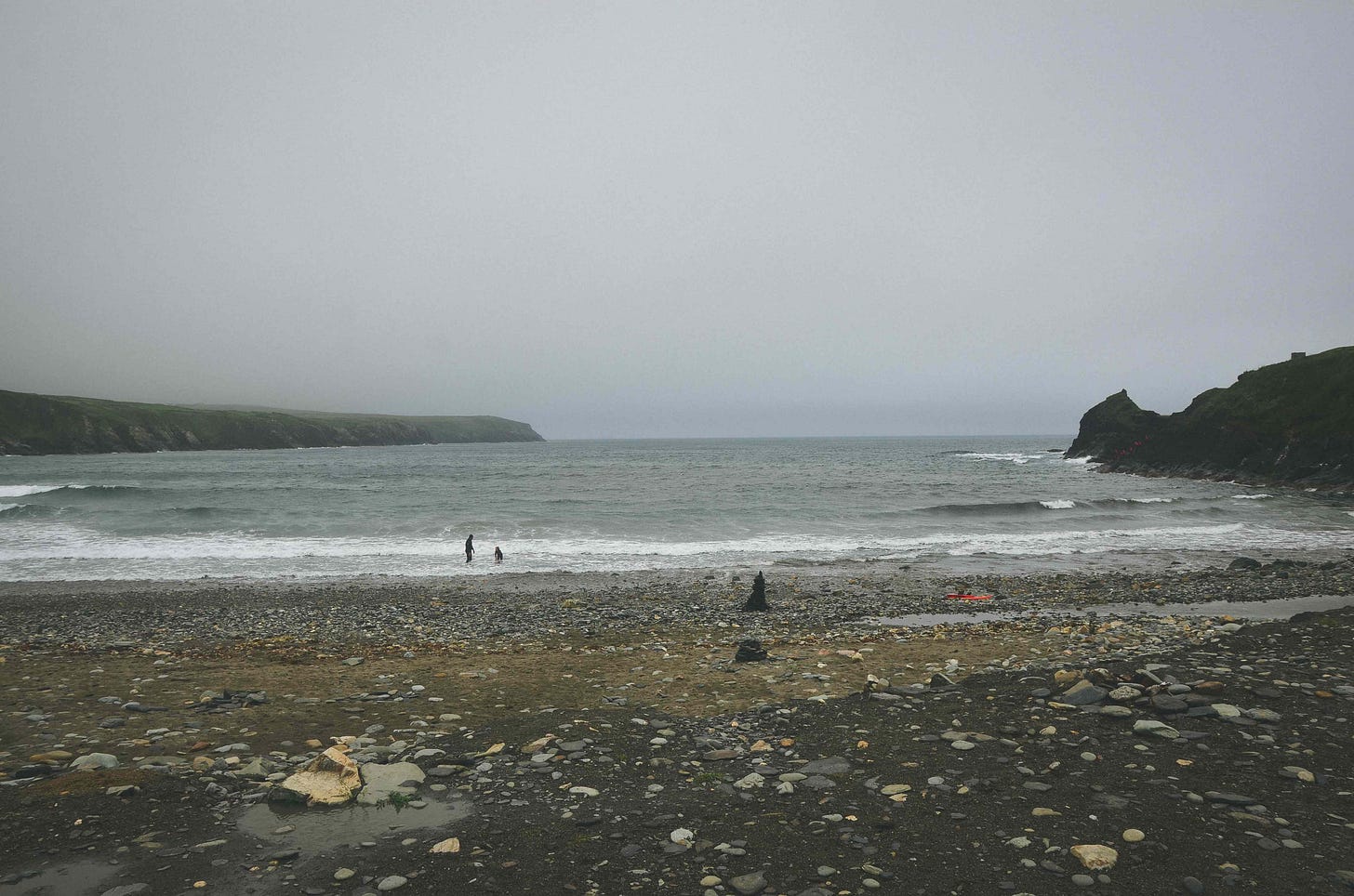
Unfortunately, when it comes to the UK I feel that Wales is always the forgotten country in the UK's "country of countries." So often we hear of Scotland because of stuff like the Scottish referendum, or then there is Northern Ireland because of "The Troubles" in previous decades, but I don't often hear of Wales. Driving through Wales, I was once again reminded, that Wales is also a very distinct culture and country as well. The highway signs were all in English as well as Welsh. My only exposure to Welsh was coming across gimmicky videos of people attempting to pronounce Welsh village names. When I was there and saw it in the places where we were navigating through, the gimmicky-ness of it was swept aside, and I felt like I began to see Wales as a distinct country, with similar desires to establish a strong Welsh identity. Or at least this is what it appeared to me at the time. In the Brexit vote, Wales just passed the 50 percent threshold for the Leave camp, unlike Scotland and Northern Ireland. So before I knew it we drove back to Birmingham and with a week to go before the wedding I decided to dip into London. And what a dip it was.
Taking the train and arriving at Euston station in the centre of London, I arrived around noon and immediately got to seeing the sites. I biked to Abbey Road, thinking that since it was around lunchtime and still early in the day, that there wouldn't be a lot of people. I was wrong. There groups there, on the side waiting their turn, while the tourists crossing and taking photos kept stopping traffic because, well unsurprisingly Abbey Road is still an active road with car traffic. So no Abbey Road photo for me, instead just a memory of this strange scene.
Next on my stops, the British Museum. What blew me away and what I remember about the space was the crowds. I should have assumed a free museum located in one of the major cities in the world would be overrun with people.
In many ways, this crowded-ness of the museum was a small microcosm of the larger hustle and bustle of the city. The business of London caught me off guard. Perhaps it was that I was travelling alone and thus, the sheer amount of people that I would sometime have to weave through only highlighted that fact that I was a small person in a huge crowd. After being use to navigate through different UK cities with friends or other people it was really weird being all alone.
I think my time in London crystallized what had slowly been dawning on me the entire trip: the incredible loneliness of travelling alone. That might sound extreme, but I just have to hold on to some shred of that statement, in order to balance out the blind nostalgia and rose coloured wanderlust that I already find slowly coating my memories of my UK trip.
But for my gripes, it was a great experience being in London. On top of seeing all these incredible structures, the London Eye, Big Ben, Tower Bridge (very often confused as London Bridge, but I guess its a bridge that is in London, so why not?), biking between all these sites made the experience even more memorable. As I talked about earlier, biking around made me see all the in between places that gave me a really good mental map of centre London. Instead of simply consisting of areas around a tube station, it was a larger continuous area.
That was another interesting thing. During the whole time in London I never took the tube. Since I was using my bike as my primary mode of transportation, any visit of the tube would essentially be to take the tube just for the sake of it, and there were so many sites to see in London, I would have much rather simply used the time (and money) towards something else. (Besides I grew up going on the newer, and according to my British friend, “much better and nicer tube system” in Hong Kong, which was basically modelled after the London one.)
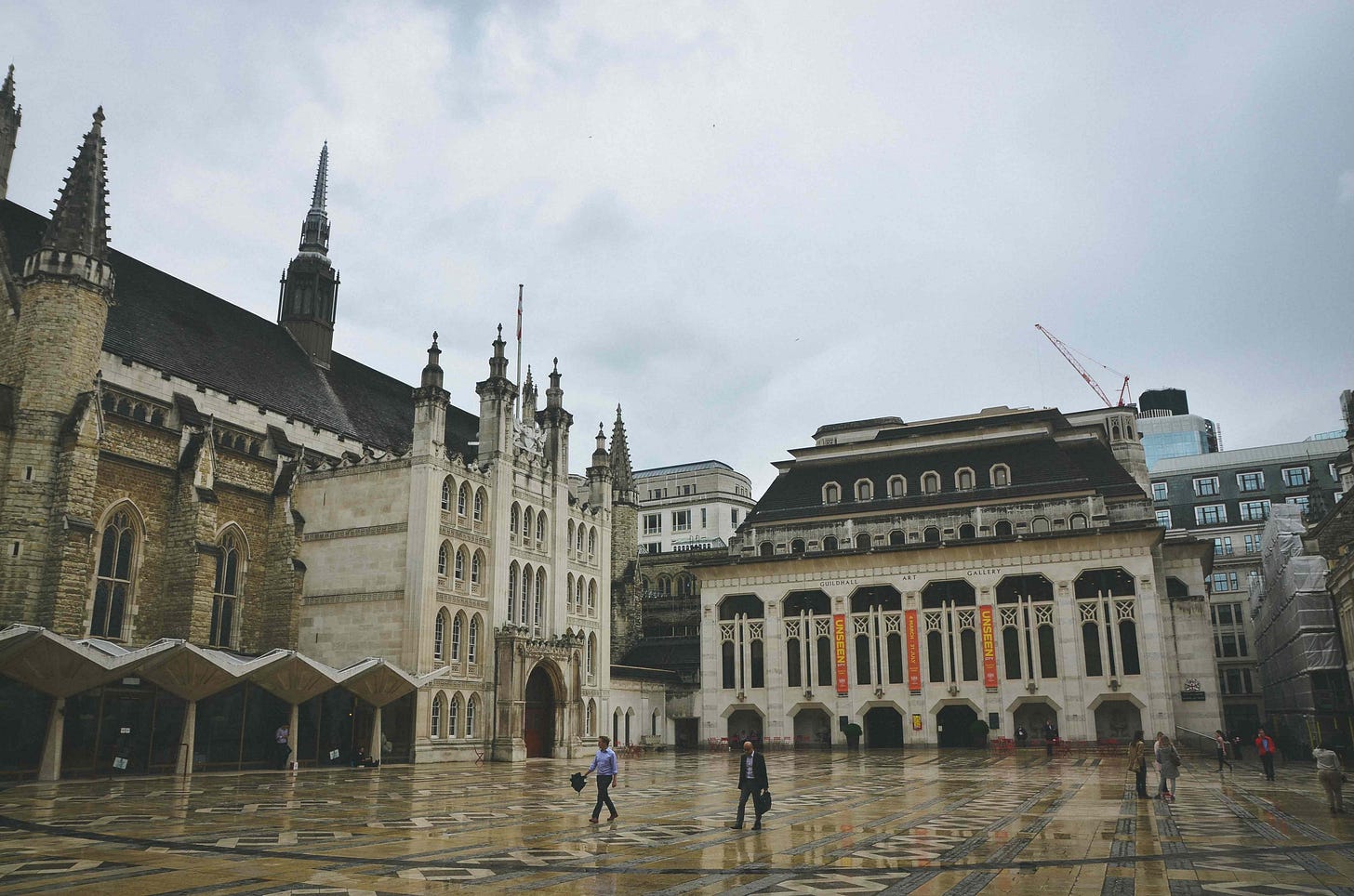
Staying at a friend's friend place, I spent about two and a half days biking all throughout London seeing sights of all different kinds. What I didn't really see was any indication or anything that reminded me of Brexit. And why would I? Being in London, it is a whole world unto itself. The incredible cosmopolitan nature of London really made me forget most of it. Statistics backed this up. Compared to the rest of England, London voted overwhelmingly to stay in the EU. Similar to the phenomenon of liberal bubbles in America creating the false sense of a lack of Trump support, it really seemed that London gave me a false sense of almost forgetting that Brexit happened. Then while I was biking to yet another destination, the National Gallery, I just so happened to be passing by 21 Downing street and there were huge crowds surrounding the entrance.
Naturally I had begun to acclimatize myself to large crowds in London and I initially assumed there was always this many people surrounding it, people trying to get a glimpse of the Prime Minister or pose for photos. I asked someone standing around "What's happening?" They responded something to the effect of "Well apparently David Cameron has resigned and we think he will shortly be leaving Downing Street for good."
Ah yes. David Cameron. The Prime minister at the time. He had been the one who actually called for the referendum regarding whether or not to leave the EU. Badgered by UKIP and breakaway sentiments in his conservative party, he had put forward the referendum, certain of the outcome and hopeful that it would permanently quell those sentiments in his party and consolidate control. Or at least that's my take of it, based on what I've read.
However, he betted wrong, Brexit happened, he resigned, and I just happened to be there the moment when he was leaving. While that might sound fairly dramatic and eventful, it was honestly a little anti-climatic. I waited around for about 10 minutes and suddenly there was a murmur in the crowd and the gate doors opened, two black cars just quickly zoomed past the crowd, and then that was it. I remember talking with my brother months later and he described that it was so surreal to get a photo of me standing outside of Downing street and then a minute later getting a BBC news alert saying that David Cameron had resigned. Afterwards the crowd slowly dispersed and I remember overhearing a man describing the event to a friend on the phone and talking about how angry he was with David Cameron. I returned from London and after attending the wedding for my friend, I dismantled my bike, stuffed it into a bike box and got on a flight back to Canada.
It's been a year since my trip there and the future of the UK is still uncertain. The Brexit negotiations with the EU have officially begun and for the next year and a half to two years, the whole world will watch to see what sort of arrangement transpires. The UK wants a "soft" Brexit, essentially meaning that they get to have their cake and eat it too, however many have said that the EU needs to get a "hard" Brexit, completely shutting them out of the EU, and making them an example, hopefully striking enough fear in EU countries who have thoughts of leaving. The entire EU project, 40 years in the making, seems to be in the balance, or so they say. We have yet to see. I guess we just have to resort to living in these interesting times.























